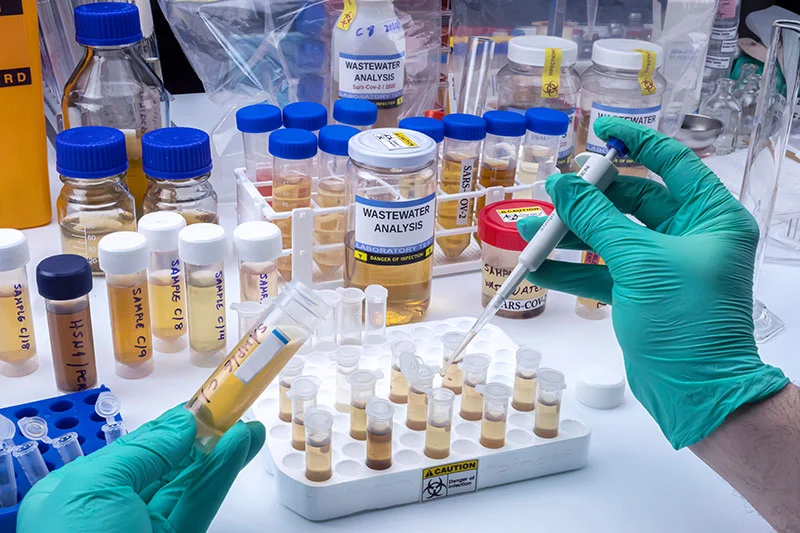The Importance of Wastewater Treatment
Wastewater treatment is critical for maintaining public health, environmental sustainability, and economic stability. Harmful substances from industrial, residential, and agricultural sources could contaminate our water supply without proper treatment. To ensure the effectiveness of treatment processes, facilities often rely on services from a wastewater testing lab. These labs are essential in monitoring and optimizing treatment procedures to meet regulatory standards.
Before water is released into the environment, wastewater treatment eliminates or neutralizes dangerous contaminants. This process protects aquatic ecosystems and prevents the spread of waterborne diseases. Furthermore, it supports water recycling for various uses, contributing to conservation efforts.

Innovative Technologies in Wastewater Treatment
The field of wastewater treatment has seen significant advancements in recent years. Techniques such as membrane bioreactors and advanced oxidation processes set new standards for efficiency and effectiveness. Membrane bioreactors, for instance, combine biological treatment with membrane filtration, resulting in higher-quality effluent. This method is beneficial for treating industrial wastewater containing complex organic compounds.
Additionally, constructed wetlands have become an environmentally friendly option, utilizing natural processes within engineered wetland settings to treat wastewater. These cost-effective systems provide aesthetic and ecological benefits, making them popular in urban and rural areas. Constructed wetlands mimic natural wetlands by using vegetation, soil, and microbes to remove contaminants from wastewater, which makes them an excellent alternative for communities looking to reduce their ecological footprint.
Economic and Environmental Benefits
Adopting modern wastewater treatment technologies often leads to cost savings and long-term sustainability. Efficient systems reduce energy use and lower operational costs, making them financially viable for municipalities and industries. Moreover, better treatment methods result in fewer pollutants being released into waterways, helping to protect aquatic ecosystems and biodiversity. This is especially crucial in areas with a water shortage and environmental damage.
A new wastewater management paper claims that cutting-edge technologies may drastically reduce the amount of medications and personal hygiene items in treated effluent. This reduction is beneficial for both human and aquatic life, as these substances are known to disrupt endocrine systems and contribute to the development of antibiotic-resistant bacteria. By reducing the environmental and health impacts associated with untreated wastewater, advanced treatment technologies support the broader goal of sustainable water resource management.
Public Health Advantages
Adequate wastewater treatment is indispensable for public health. Eliminating dangerous chemicals and organisms from sewage lowers the likelihood of outbreaks and aids in preventing waterborne illnesses. Untreated wastewater, for instance, may include pathogens like E. Coli and E. coli, which can result in dangerous infections. Proper treatment processes neutralize these pathogens, ensuring the water returning to the environment is safe for human contact and consumption.
Furthermore, well-treated water may be recycled for several uses, including industrial operations, irrigation, and, in certain circumstances, drinking water. This reuse reduces the demand for freshwater resources, crucial in areas prone to droughts and water shortages. By reusing treated water, communities can decrease their dependence on limited freshwater supplies, promoting more sustainable water use practices. Reusing treated wastewater also reduces the environmental impact of extracting and transporting freshwater, further supporting eco-friendly initiatives.
Real-World Examples
Several cities around the world have successfully adopted advanced wastewater treatment technologies. For example, Singapore’s NEWater initiative provides high-grade reclaimed water that meets up to 40% of the nation’s water demand. This project showcases the potential of cutting-edge technology in addressing water scarcity issues. NEWater undergoes rigorous treatment processes, including microfiltration, reverse osmosis, and ultraviolet disinfection, to ensure the highest quality water suitable for industrial and potable uses.
In North America, the City of Los Angeles has implemented the Hyperion Water Reclamation Plant, which uses advanced processes to treat 260 million gallons of wastewater daily. The treated water is used for various purposes, including industrial cooling and landscape irrigation, demonstrating the versatility and efficacy of modern treatment methods. The Hyperion facility offers a consistent supply of recovered water for non-potable applications while lowering the environmental effect of wastewater by utilizing cutting-edge treatment methods.
Future Trends
The future of wastewater treatment is promising, with ongoing research into more efficient and sustainable methods. Innovations such as decentralized treatment systems and artificial intelligence for process optimization are on the horizon. Decentralized systems allow for wastewater treatment at or near its source, reducing the need for extensive infrastructure and lowering transportation costs. These systems are particularly beneficial in rural or developing areas, where centralized treatment facilities may be impractical or economically unfeasible.
Real-time treatment process optimization is another study area for artificial intelligence and machine learning. These technologies can predict equipment failures, adjust chemical dosages, and improve overall system efficiency by analyzing vast amounts of data. This could lead to significant cost savings and enhanced treatment outcomes. AI-driven systems can continuously monitor and adapt to changing conditions within treatment facilities, ensuring optimal performance and reducing the risk of system failures.
Moreover, there’s a growing movement to lower wastewater treatment facility operating costs and environmental impact by incorporating renewable energy sources like solar and wind power into their operations. Treatment facilities may increase their energy sustainability and independence by utilizing renewable energy, which will aid in the worldwide effort to cut greenhouse gas emissions and fight climate change.




